The renowned Canadian artist Douglas Coupland discusses how his love of plastic morphed into an art exhibit about ocean pollution.

THE BOLD COLOURS and flawless textures of plastics have been longtime sources of artistic inspiration for Douglas Coupland, one of Canada’s best-known artists and writers. But after confronting his own relationship with plastic on the northern coast of Haida Gwaii, B.C., Coupland saw the material melt from an inspired art form into a tangible concern.
Now, he’s swirled together cigarette butts, water bottles, flip-flops, a picnic cooler, jerry cans and other pieces of trash from the Pacific Ocean in a 50,000-litre tank at the Vancouver Aquarium to create Vortex, an exhibit that confronts visitors with tanks of used garbage placed among scenes and sounds of Haida Gwaii, where much of the material was found.
Here, Coupland speaks about the exhibit, his own relationship with plastics and creating art to inspire change.
WHAT IS YOUR ARTISTIC RELATIONSHIP WITH PLASTIC?
In 1983, I went to art school in Japan and I really bonded with the Japanese industrial colour palette of plastics. It’s a very orthodox set of red, blue, yellow, pink, turquoise, black and white, and I thought it was very cheerful.
Then I was in a Tokyo department store in 1999 or 2000 and had this magic moment when all these cleaning products in the aisle started speaking to me. I bought about 150 bottles — bleach, fabric softener, et cetera — and then, back in my hotel room, emptied it all down the toilet. It sort of freaks people out, but then I say, “Let me get this straight. You add dead skin flakes to it, then that would have been OK?” And suddenly everyone realizes that they’re just as complicit. I came back home and racked the bottles up sort of deadpan, as a collection; I just liked the way they looked.
Denne historien er fra November/December 2018-utgaven av Canadian Geographic.
Start din 7-dagers gratis prøveperiode på Magzter GOLD for å få tilgang til tusenvis av utvalgte premiumhistorier og 9000+ magasiner og aviser.
Allerede abonnent ? Logg på
Denne historien er fra November/December 2018-utgaven av Canadian Geographic.
Start din 7-dagers gratis prøveperiode på Magzter GOLD for å få tilgang til tusenvis av utvalgte premiumhistorier og 9000+ magasiner og aviser.
Allerede abonnent? Logg på
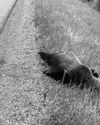
ANIMAL XING
THIS PAST SUMMER AN AMBITIOUS WILDLIFE UNDER/OVERPASS SYSTEM BROKE GROUND IN B.C. ON A DEADLY STRETCH OF HIGHWAY JUST WEST OF THE ALBERTA BORDER. HERE’S HOW IT HAPPENED.
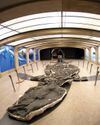
Unearthing a giant
Almost 30 years ago, paleontologist Elizabeth “Betsy” Nicholls made a discovery of colossal proportions
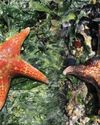
WE DID THIS
AS THE IMPACTS OF GLOBAL WARMING BECOME INCREASINGLY EVIDENT, THE CONNECTIONS TO BIODIVERSITY LOSS ARE HARD TO IGNORE. CAN THIS FALL’S TWO KEY INTERNATIONAL CONFERENCES POINT US TO A NATURE-POSITIVE FUTURE?
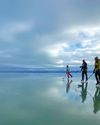
The COOLEST COUNTRY
“The coolest country” celebrates the wonders of winter with an all-Canadian theme. The 20-page travel planner includes a bucket list from travel writer Robin Esrock, steamy spa ideas, ice fishing destinations, festival fun, northern itineraries and more!
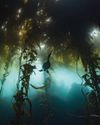
KEEPER of the SEA
FROM BEING LABELLED DEVIL’S APRON BY FRUSTRATED FISHERMEN TO BEING LAUDED AS A SUSTAINABLE FOOD SOLUTION: HOW KELP’S POTENTIAL IS BEING REALIZED, JUST AS SCIENTISTS LEARN IT’S DECLINING
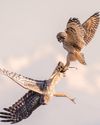
WILD THINGS
WILD CANADIAN GEOGRAPHIC PRESENTS THE WINNERS OF ITS ANNUAL CANADIAN WILDLIFE PHOTOGRAPHY OF THE YEAR COMPETITION
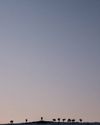
AN EMPTY LANDSCAPE
AFTER MORE THAN A MILLION YEARS ON EARTH, CARIBOU ARE UNDER THREAT OF GLOBAL EXTINCTION. THE PRECIPITOUS DECLINE OF THE ONCE MIGHTY HERDS IS A TRAGEDY THAT IS HARD TO WATCH — AND EVEN HARDER TO REVERSE.
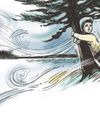
NORTHERN EXPOSURE
BON INTO A CARIBOU-HUNTING CREE FAMILY IN NORTHERN MANITOBA, ACCLAIMED PLAYWRIGHT AND NOVELIST. TOMSON HIGHWAYS PAYS TRIBUTE TO THE MAGICAL WORLD OF HIS CHILDHOOD IN PERMANENT ASTONISHMENT
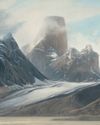
INTO THE ARCTIC
CANADIAN PAINTER AND FILMMAKER CORY TRÉPANIER EXPLORES THE SUBLIME AND RAPIDLY CHANGING CANADIAN ARCTIC
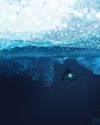
Under the ice
Until the last decade, we knew little about what lay beneath the Arctic ice. Now scientists and explorers are shedding light on this vanishing world.